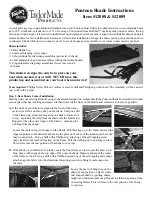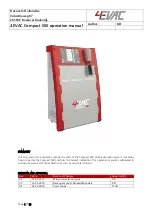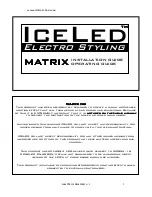
5
Leica VT1000 S – Microtome
1.1
Symbols used in this manual and
their meaning
Warnings
appear in a grey box and are marked
by a warning triangle:
Useful notes,
i.e. important user information ap-
pear in a grey box and are marked by
an information symbol:
Figures in brackets refer to item
numbers in drawings or to the draw-
ings themselves.
1.
Important notes
( 5 )
(Fig.5)
Instrument type:
All information given in this instruction manual
applies only to the VT1000 S.
A name plate, indicating the instrument serial
number, is attached to the back of the instru-
ment.
Required information for all inquiries:
For any inquiries please specify:
•
Instrument type
•
Serial number
1.2
Qualification of personnel
The Leica VT1000 S should be operated by
trained laboratory personnel only.
Prior to starting work with the instrument, all
laboratory personnel designated to operate the
instrument must carefully read the present in-
struction manual and must be familiar with all
technical features of the instrument.
1.3
Designated use / improper use
The VT1000 S has been designed for section-
ing of specimens in medicine, biology and in-
dustry, especially for sectioning fixed or fresh
tissue immersed in buffer solution.
The instrument must be operated exclusively
according to the instructions contained in this
manual.
Any other use of the instrument is considered
improper.






































